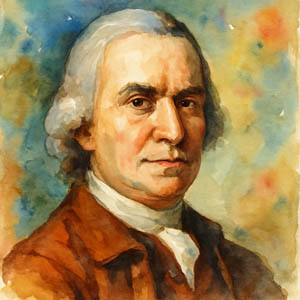— Samuel Adams
 Described as “the Man of the Revolution” by Thomas Jefferson, patriot and politician Samuel Adams (1722–1803) was born on this day in Boston, Massachusetts.
Described as “the Man of the Revolution” by Thomas Jefferson, patriot and politician Samuel Adams (1722–1803) was born on this day in Boston, Massachusetts.
“The natural liberty of man is to be free from any superior power,” said Adams, who graduated from Harvard in 1740 and was the cousin of John Adams. He worked in his father's brewery before turning to public service and revolutionary ideas.
“While the people are virtuous, they cannot be subdued,” he believed. “Once they lose their virtue, they will be ready to surrender their liberties to the first external or internal invader.”
A skilled writer and powerful orator, Adams was a fierce advocate against England’s rule. He opposed the Stamp Act and helped organize the Boston Tea Party of 1773 as part of the revolutionary group Sons of Liberty.
“Among the natural rights of the colonists are these: First, a right to life; secondly, to liberty; and thirdly, to property—together with the right to defend them in the best manner they can.”
Known for his patience and disciplined mind, Adams was a close friend of John Hancock and a key member of the Continental Congress. He signed the Declaration of Independence and later served as governor of Massachusetts from 1793 to 1797.
He envisioned America as a land of freedom and self-rule—a place where his words and unwavering actions helped lay the foundation of a new nation.
“It does not require a majority to prevail,” he once said, “but rather an irate, tireless minority keen to set brush fires in people’s minds.” His spark reminds us that even in our own time, one steadfast voice can ignite the change the world needs.
 Go for what stirs your spirit. ✨🔥
Go for what stirs your spirit. ✨🔥
